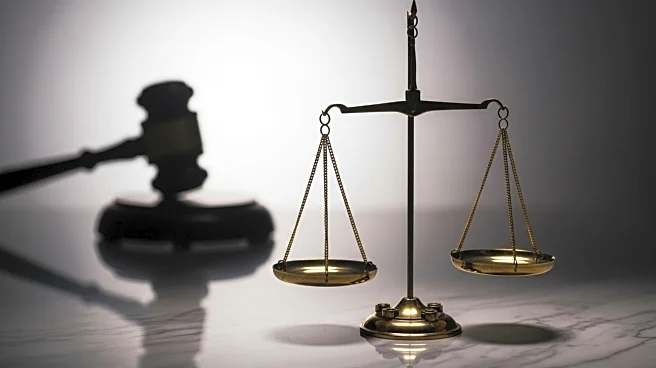What is the story about?
What's Happening?
The United States is contemplating imposing sanctions on the entire International Criminal Court (ICC), marking a significant escalation in its stance against the court. Washington has previously targeted individual prosecutors and judges with sanctions, but extending these measures to the institution itself would represent a major shift. The ICC, based in The Hague, has been involved in high-profile investigations, including issuing an arrest warrant for Russia's President Vladimir Putin over alleged war crimes in Ukraine. The potential sanctions reflect ongoing tensions between the U.S. and the ICC, particularly concerning investigations into alleged Israeli war crimes.
Why It's Important?
Sanctioning the ICC could have profound implications for international law and diplomacy. It may hinder the court's ability to conduct investigations and hold individuals accountable for crimes against humanity, war crimes, and genocide. The move could also strain U.S. relations with countries that support the ICC, potentially affecting collaborative efforts in global justice and human rights advocacy. Furthermore, it underscores the challenges faced by international institutions in navigating geopolitical pressures and maintaining their mandate amidst opposition from powerful nations.
What's Next?
If the U.S. proceeds with sanctions against the ICC, it may trigger diplomatic backlash from countries that view the court as essential for upholding international justice. The ICC's ability to function effectively could be compromised, leading to debates on its future role and the need for reforms. The situation may also prompt discussions within the U.S. government and among international stakeholders about balancing national interests with global justice commitments. The outcome of this decision could influence the ICC's approach to handling politically sensitive cases and its interactions with member states.

















